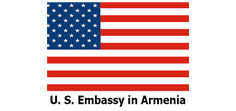There is a conflict of opinions related to the question whether a number of people imprisoned in Armenia during the recent years are political prisoners. The main tendency is that the authorities deny existence of political prisoners in Armenia, and representatives of opposition, as well as non-governmental organizations, human rights defenders find that there actually are political prisoners in Armenia. Moreover, there are people who claim that a person cannot be called a political prisoner if there is corpus delicti in his/her actions.
International organizations dealing with issues related to political prisoners have certain criteria for classifying one or another person into that category. Let us try to discuss the definitions of the terms “political prisoner” and “prisoner of conscience” by the most prestigious institutions.
PACE
By its resolution adopted in 2012, the Parliamentary Assembly of the Council of Europe (PACE, which Armenia is also member of) has reinstated its criteria on the definition of political prisoners adopted in 2001. In particular, it is mentioned in the resolution that a person deprived of his or her personal liberty is to be regarded as a political prisoner:
- if the detention has been imposed in violation of one of the fundamental guarantees set out in the European Convention on Human Rights and its Protocols (ECHR), in particular freedom of thought, conscience and religion, freedom of expression and information, freedom of assembly and association;
- if the detention has been imposed for purely political reasons without connection to any offence;
- if, for political motives, the length of the detention or its conditions are clearly out of proportion to the offence the person has been found guilty of or is suspected of;
- if, for political motives, he or she is detained in a discriminatory manner as compared to other persons; or,
- if the detention is the result of proceedings which were clearly unfair and this appears to be connected with political motives of the authorities.”
It is also clearly stipulated in the resolution that those deprived of their personal liberty for terrorist crimes shall not be considered political prisoners.
Amnesty International
The world-famous Amnesty International defines two concepts: a political prisoner and a prisoner of conscience. The organization has a wider definition of the term “political prisoner”. In particular, it regards as a political prisoner any prisoner whose case has a significant political element: whether the motivation of the prisoner’s acts, the acts in themselves, or the motivation of the authorities. The organization requires a fair trial for political prisoners.
The concept “political prisoner” includes the concept “prisoner of conscience. According to Amnesty International, those persons are prisoners of conscience who have been deprived of their liberty for their convictions, expressed views or on national, racial and other backgrounds, and as a compulsory condition, have not committed any violence or carried out its propaganda. The organization finds that all prisoners of conscience should be released immediately and without preconditions.
In Armenia
Hence, we can state that there are political prisoners in Armenia according to both criteria. By the PACE’s criteria, political prisoners are, for instance, Andrias Ghukasyan, Gevorg Safaryan, Shant Harutyunyan, Hayk Kyuregyan, and etc… The question whether the “Sasna Tsrer” group are political prisoners is a matter of discussion by PACE’s criteria. But if it is proved that they are receiving a more severe treatment because of their oppositional views, then they also shall be regarded as political prisoners.
But by Amnesty International’s definition, “Sasna Tsrer” group members are political prisoners, and Gevorg Safaryan, Andrias Ghukasyan and a number of other people are prisoners of conscience.
Anush Hambaryan

 FACTOMETER
FACTOMETER











